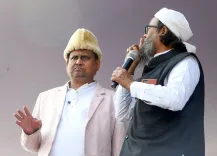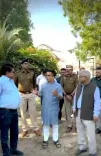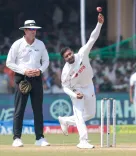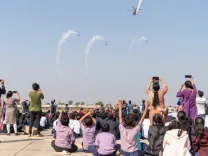How Did PM Modi and Angolan Prez Lourenco Discuss Deepening Ties and Global South Collaboration?
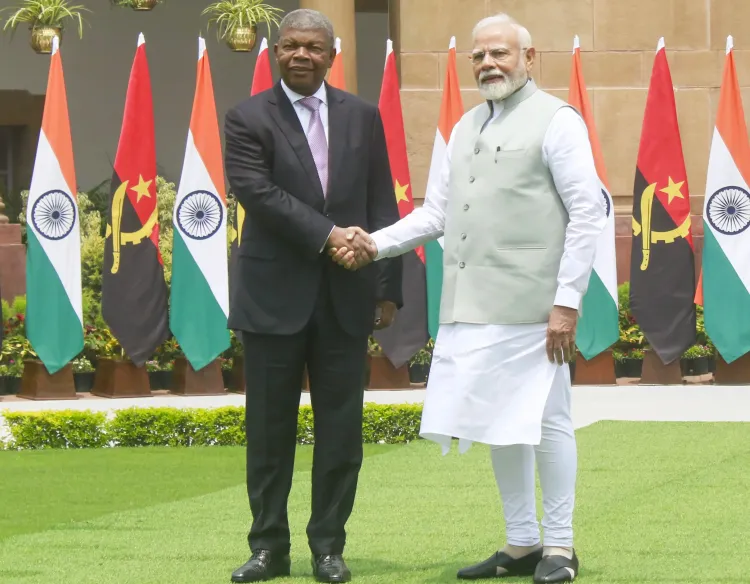
Synopsis
Key Takeaways
- Strengthening bilateral ties between India and Angola.
- Expansion of economic cooperation in various sectors.
- Focus on the Global South and mutual support.
- Initiation of youth exchange programs to enhance people-to-people connections.
- Significant trade growth reaching nearly $100 million.
New Delhi, May 3 (NationPress) Prime Minister Narendra Modi convened a bilateral discussion with Angolan President Joao Manuel Goncalves Lourenco at Hyderabad House in New Delhi, offering heartfelt congratulations to Angola for taking on the leadership of the African Union and emphasizing the longstanding ties shared by both nations.
During a joint press conference with President Lourenco, PM Modi remarked, "India and Angola are commemorating the 40th anniversary of our diplomatic relations. Yet, our partnership extends back to when Angola was striving for independence, and India stood by it with unwavering support and friendship."
Celebrating Angola's role in the African Union, the Prime Minister stated, "It is a source of pride for us that under India's G20 presidency, the African Union achieved permanent membership in the G20. Both India and African nations have united to voice resistance against colonialism. Today, we continue to advocate for the Global South — its hopes, expectations, and aspirations."
The Prime Minister pointed out the significant advancement in India-Africa cooperation over the last decade, highlighting that bilateral trade has approached nearly $100 million.
He also underscored the expanding collaboration in Defence and maritime security, particularly noting the recent inaugural India-Africa Naval Maritime Exercise.
"In the past decade, we have established 17 new embassies throughout Africa. India has granted over $12 billion in credit lines to African nations and provided $700 million in grants," said PM Modi, adding that vocational training centers have been set up in eight African countries, with ongoing partnerships in digital public infrastructure in five more.
Highlighting India’s steadfast support in times of crisis, he noted, "India has stood shoulder to shoulder with the people of Africa as a primary responder during calamities. We consider the African Union a partner in progress and a cornerstone of the Global South."
Additionally, he remarked on India's pivotal role as a significant buyer of Angola's gas and oil, expressing willingness to assist in training Angola's armed forces. He stated that India would share its expertise in digital public infrastructure, space technology, and capacity enhancement with Angola.
"Today, we also agreed to fortify our connections in healthcare, diamond processing, fertilizers, and critical minerals," he added, also acknowledging the popularity of Yoga and Bollywood in Angola as symbols of the cultural strength of their relationship. To further enhance people-to-people connections, he announced the initiation of a youth exchange program.
In his address, President Lourenco stated, "I have come to India to convey a message of admiration and friendship for your country, which has a rich history in cultural, scientific, technological, and political accomplishments on the global stage."
Outlining Angola's future vision for bilateral relations, he said, "We desire relations founded on tangible, achievable goals with practical outcomes that will benefit our populations."
He asserted that Angola would focus on sectors such as agriculture, finance, health, defence, higher education, IT, energy, trade, and mineral resources in its collaboration with India.
He emphasized Angola's eagerness for deeper economic engagement, stating, "We place great importance on the direct involvement of Indian investors in the Angolan economy, which presents growth opportunities and favorable conditions."
This meeting marked a pivotal advancement in India-Angola relations, strengthening shared objectives in development, energy security, cultural exchange, and solidarity within the Global South.







